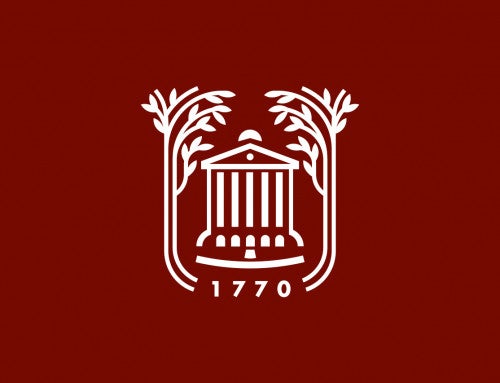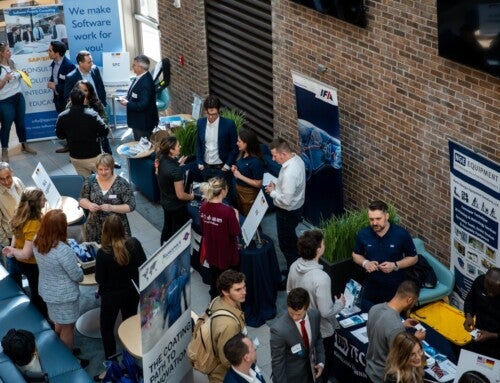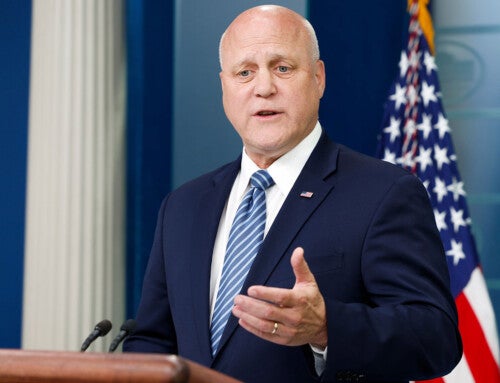College of Charleston leadership issued the following statement to the campus community on Friday, May 29, 2020:
Dear Campus Community:
There are many lessons to be learned from this current pandemic. The message connecting it all these months has been that the present moment is a time for us all to be united … a time for togetherness.
Unfortunately, issues of racism don’t take a sick day, not even for a pandemic. Within the past several months, we have seen two African American males, Ahmaud Arbery and George Floyd, lose their lives in the most heinous ways. Arbery was shot in broad daylight by local citizens, and Floyd died after being restrained by a police officer.
As we look ahead to the fall semester, let’s come together to call out racism and hatred and do all we can to make sure the College stands for the best of our society and not what these acts represent, which is the worst of our society. In these particular incidents, there is an important – an essential – process that needs to play out in our court systems. We are not the judge and jury, and do not pretend to be. Yet, at the same time, we, as a campus community, can clearly see the tragedy in front of us.
Three words: It Is Wrong. Those three words about racism should suffice in determining our actions and how we look at incidents like these. For one human being to treat another human being as if he/she/they is less than, is evidence that we are not standing up for each other as we should. We have much work to do.
While these incidents may not have occurred on our campus or directly involved a member of our campus community, it still does harm. The ripple effect of these incidents is not just felt by those immediate communities and families, but it actually affects all of us – some in subtle ways, some more overtly. We trust less, we feel less, we care less.
That is not what the College of Charleston is about. We are about more, not less: more understanding, more empathy, morecompassion. That is what our campus core values stand for, especially as they relate to diversity, equity and inclusion. As a university, we believe in social responsibility and creating and nurturing a diverse and inclusive community so that all of our members can go out into the world and foster greater understanding and acceptance.
So what? Just more words, you might say. But, statements do make people aware and show a university’s position on an injustice in powerful ways. So then, what can the College of Charleston do? We, as an institution, continue to evolve our approach to education. We are not the same university we were 250 years ago. What was once a small and insular institution for white elite men is now global in thinking and reach for all races, ethnicities and gender identifications.
While there is no one-size-fits-all solution that can shield anyone and everyone from the many different forms that racism takes, we, as a college community, believe education is the key to combating ignorance and intolerance. It has always been the key. By educating and graduating more students, especially those from underserved and minority communities, we ensure that more people view the world – and their fellow human beings – through a broader lens. Education improves our society by teaching us to appreciate and celebrate the differences in our life experiences rather than fear them, repress them and punish them.
In honor of Ahmaud Arbery, George Floyd and the most vulnerable, let’s prove that we are better than the worst of our society. In dynamic fashion, we can work together to educate all of our students about what makes our society exceptional. Together, we must stay focused on diversity, equity and inclusion in our campus life and in our curriculum in order to prepare all of our students and graduates to be global leaders committed to being just and fair.
If we can do this, we will be able to say clearly, honestly and loudly, these three words: This Is Right!
Sincerely,
Andrew Hsu, President
Mark Berry, Deputy Chief of Staff
Alicia Caudill, Executive Vice President of Student Affairs
Trisha Folds-Bennett, Dean of the Honors College
Jimmie Foster, Vice President of University Marketing and Enrollment Planning
Godfrey Gibbison, Dean of the School of Professional Studies and Interim Dean of the Graduate School
Rénard Harris, Chief Diversity Officer and Vice President of Access and Inclusion
Courtney Howard, Interim Dean of the School of Education, Health, and Human Performance
Tim Johnson, Dean of the School of Languages, Cultures, and World Affairs
Gibbs Knotts, Interim Dean of the School of Humanities and Social Sciences
Ron Menchaca, Vice President of University Communications
Elizabeth Meyer-Bernstein, Interim Dean of the Honors College
John Morris, Vice President of Facilities Management
Valerie Morris, Dean of the School of the Arts
Paul Patrick, Chief of Staff
Ed Pope, Interim Executive Vice President of Business Affairs
Matt Roberts, Director of Athletics
Alan Shao, Dean of the School of Business
Mark Staples, Chief Information Officer and Senior Vice President of Information Technology
Suzette Stille, Interim Vice President of University Marketing and Enrollment Planning
Chris Tobin, Executive Vice President of Institutional Advancement
Sebastian van Delden, Interim Dean of the School of Sciences and Mathematics
Fran Welch, Interim Provost and Executive Vice President of Academic Affairs
John White, Dean of the Libraries



